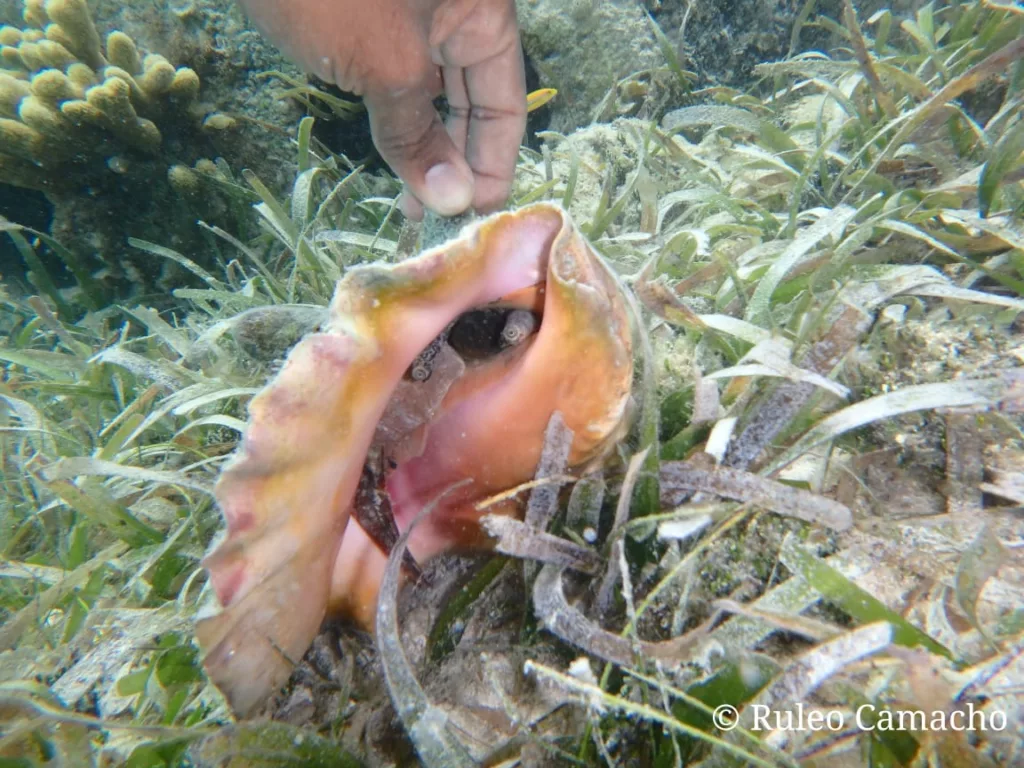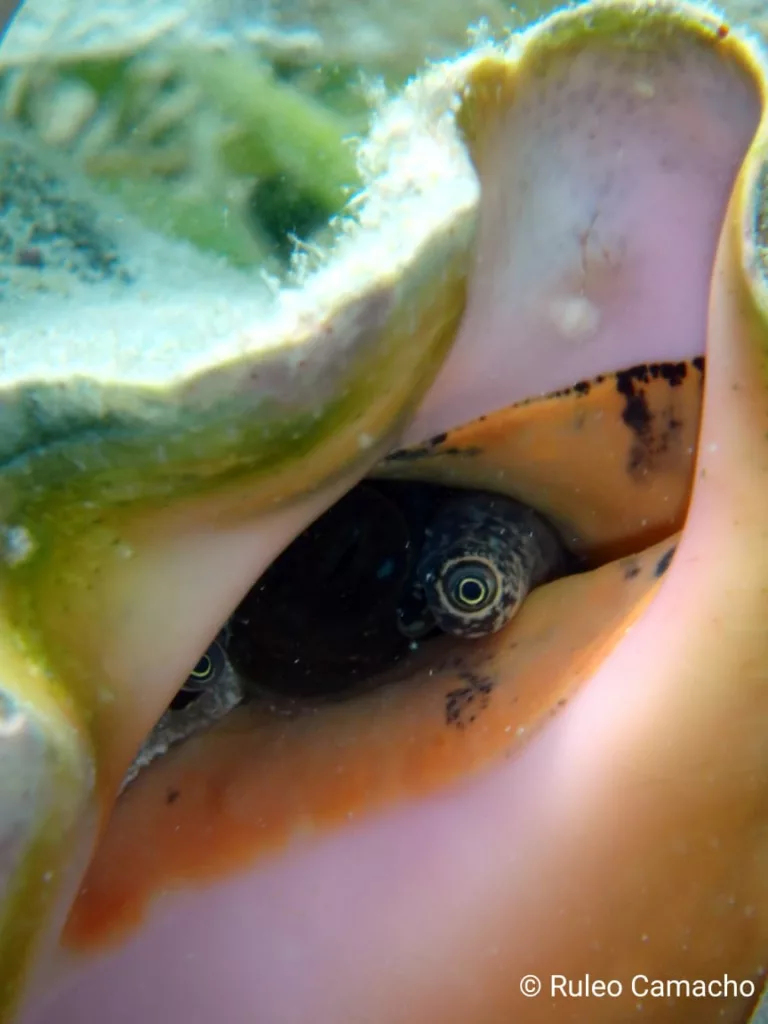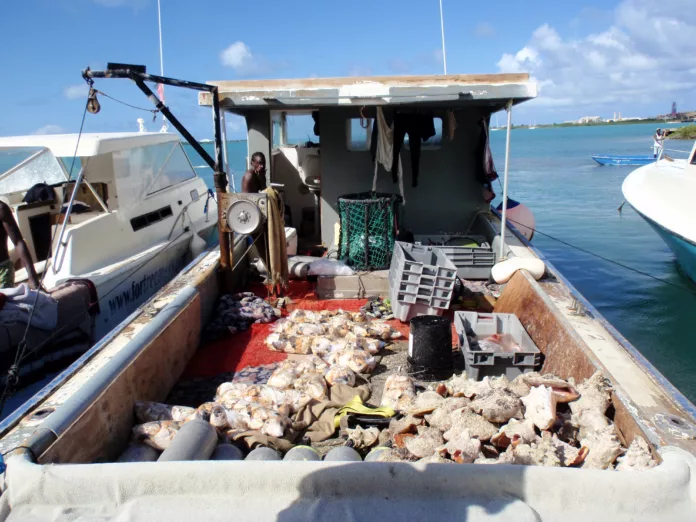
July 1st marked the start of the closed season for the queen conch, a large marine snail that is highly valued both for its meat and its shell. Over the next two months, it is illegal to capture, place for sale, purchase or have in your possession any conch products. These provisions apply to all individuals across the fisheries value chain, from providers to consumers.
Closed seasons perform a critical conservation function within fisheries systems. They are timed to coincide with peaks in spawning activity for the managed species. As individuals in the population are allowed to spawn, new recruits can enter the fishery over the following years. For queen conch, allowing reproductive activity to proceed unhindered is crucial to ensuring the survival of fisheries stocks.
Unlike many other commercial fisheries species, queen conch reproduce by internal fertilisation. This means that a male must encounter a female to insert its reproductive organ into the female and fertilise her eggs. If population levels and therefore species densities are critically low, the likelihood of males encountering females for successful copulation is decreased and as a result stocks could rapidly decline. This, along with the slow-moving nature of the species as well as its relatively slow growth, makes queen conch highly vulnerable to overharvest and stock collapses.
Queen conch can live up to 30 years and reach sexual maturity between 3 – 5 years of age. In Antigua and Barbuda, as well as many other islands in the region, measures to conserve the stock are designed to ensure individuals in the population are allowed to successfully spawn at least once so that stocks are continually replenished. The establishment of the closed season as well as minimum size limits on harvestable individuals assist in this goal.

Since the institution of the closed seasons, questions have been raised about allowing consumers to stockpile prohibited species so that trade in these can continue throughout the closed season. On the surface, this may seem a reasonable market response; however, this is a practice that could be detrimental to the stocks and derail fisheries conservation efforts. If fishers and consumers are allowed to stockpile queen conch or any other species that may be subject to a closed season the consequence of this would be elevated fishing pressure on the stock prior to spawning. This would result in a significant reduction in the individuals available for spawning. As a result, over time it is likely that the fishery would record declining catch as fewer and fewer individuals are allowed to reproduce, leading to stock collapse. For queen conch, stock collapses have been devastating to populations in parts of its range. Despite decades of fishing bans and significant management measures, conch populations in Florida have failed to recover. Here in Antigua and Barbuda where queen conch stocks remain relatively healthy, it is critical that we continue to employ robust conservation strategies to ensure long-term sustainability of the fishery.
To be successful, fisheries management measures require the cooperation and buy-in of all stakeholders and resource users. Not only our fishers, but also retailers and wholesalers of fisheries products (hotels, supermarkets, restaurants, vendors) and the average consumer. We all have a collective responsibility to ensure fisheries laws are respected and adhered to. Doing so helps to maintain the livelihood of fishing communities, contributes to food security and economic growth for our nation and helps to sustain healthy and robust fish populations.
If you have any questions about fisheries closed seasons or wish to report infractions, please contact the Fisheries Division at 462-1372/6106, via email at [email protected] or leave a message on our Facebook page.


